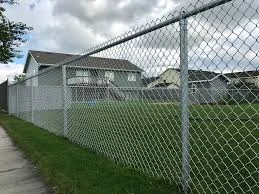The Significance of Soft Iron Binding Wire in Modern Applications
Soft iron binding wire is an essential material in various industries, known for its malleability and ductility. This specialized wire is primarily used for binding and fastening applications due to its unique physical properties. In this article, we delve into the characteristics, applications, and benefits of soft iron binding wire, illustrating why it is a preferred choice in numerous sectors.
Characteristics of Soft Iron Binding Wire
Soft iron wire is made from low carbon steel, which gives it a high degree of softness and flexibility. The significant features of this wire include
1. Malleability The softness of the iron allows it to be easily shaped into loops, knots, or other forms without breaking. This makes it an ideal choice for applications requiring intricate binding.
2. Ductility Soft iron wire can be stretched into longer lengths without losing its structural integrity, enabling different binding and fastening designs.
3. Magnetic Properties Being made from iron, this wire has ferromagnetic properties, allowing it to be used in applications where magnetism is beneficial.
4. Corrosion Resistance While soft iron can be prone to rusting, many products undergo surface treatments to enhance resistance to environmental factors, making them suitable for outdoor use.
5. Cost-Effective Compared to other materials like stainless steel, soft iron wire is relatively inexpensive, making it an economical choice for mass production in various applications.
Applications of Soft Iron Binding Wire
Soft iron binding wire is incredibly versatile and is used across several sectors, including
- Construction In the construction industry, soft iron wire is frequently used to tie rebar and other materials together, ensuring structural integrity during the pouring of concrete. It can also bind insulation materials and temporarily hold components in place.
- Agriculture Farmers utilize soft iron binding wire for various purposes, including securing plants, creating trellises for climbers, or even binding crops for easier handling and transport
.soft iron binding wire

- Electrical Applications The wire's magnetic properties make it suitable for use in electrical applications, such as creating inductive coils and transformers, where copper may not be ideal.
- Craft and DIY Projects For hobbyists and craftsmen, soft iron binding wire is a popular choice for projects ranging from jewelry making to home décor due to its ease of use and ability to hold shapes well.
- Automotive In the automotive sector, soft iron wire can be used for binding and securing parts during manufacturing, maintenance, or repairs.
Benefits of Using Soft Iron Binding Wire
Using soft iron binding wire brings a multitude of advantages
- Ease of Use Its malleability allows users to manipulate the wire easily, making it user-friendly for both professionals and DIY enthusiasts.
- Strength and Flexibility While it is soft, when used properly, soft iron wire can provide considerable strength and hold when binding materials together.
- Versatile Applications The wire effectively serves multiple purposes across different sectors, making it an invaluable tool for builders, farmers, and craftsmen.
- Economic Efficiency Its affordability makes it accessible for large-scale use in various industries, reducing the overall costs of production and application.
- Customization Soft iron wire can be produced in various gauges and lengths, allowing users to choose the right specifications for their particular needs.
Conclusion
In conclusion, soft iron binding wire is a fundamental material that plays an integral role in various industries. Its combination of malleability, ductility, and strength makes it suitable for diverse applications, providing users with an effective, economical solution for binding and fastening needs. As industries continue to evolve, the importance of materials like soft iron binding wire will remain significant, keeping it at the forefront of construction, agriculture, electrical applications, and beyond. Whether you are a builder, farmer, or DIY enthusiast, understanding the benefits and applications of this versatile material can greatly enhance your projects and productivity.
















